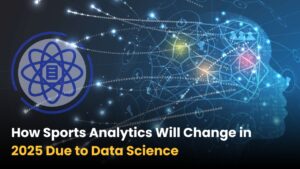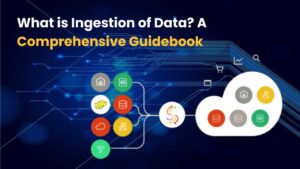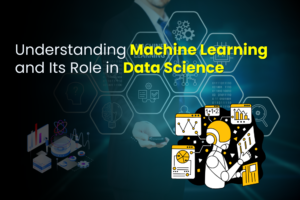Introduction
A. Definition and Characteristics
Normal distribution, often referred to as the bell curve, is a fundamental concept in statistics and data science. It’s defined by its characteristic shape, which is symmetric around the mean.
B. Real-World Examples
Normal distribution is not just an abstract idea; it appears all around us! Here are a few examples:
- Height: When measuring human heights in a large population, the distribution often follows a normal curve.
- Test Scores
- Biological Traits: Attributes like blood pressure and cholesterol levels typically follow this pattern.
The normal distribution theory gained prominence in the early 19th century, thanks to mathematicians like Carl Friedrich Gauss, who applied it to real-world problems.
For more information please visit our course Page : Data science course in Pune
C. Visual Representation
Visualizing data is vital to understanding it. The bell curve helps us to see the spread and central tendency of our data at a glance.
When interpreting a normal distribution graph:
- X-axis : values of the data.
- Y-axis : probability density.
Tools like Python’s Matplotlib and R’s ggplot2 are great options for plotting these distributions, allowing data scientists to visualize their findings effectively.
Mathematical Foundations of Normal Distribution
A. Probability Density Function (PDF)
The probability density function (PDF) plays a crucial role in mathematically describing the normal distribution. The formula for the PDF of a normal distribution is:
[ f(x) = \frac{1}{\sigma \sqrt{2\pi}} e^{-\frac{(x – \mu)^2}{2\sigma^2}} ]
Where:
- ( \mu ) : mean
- ( \sigma ) : standard deviation
- ( e ) : mathematical constant (approximately equal to 2.71828)
The area under the curve of the PDF represents the total probability (which equals 1).
B. Standard Normal Distribution
It is also known as the Z-distribution, is a specific type of normal distribution where the mean is 0 and the standard deviation is 1. To convert a normal distribution to a standard normal distribution, you calculate the Z-score using the formula:
[ Z = \frac{(X – \mu)}{\sigma} ]
This transformation allows for easier comparison between different datasets and helps in various applications like hypothesis testing.
C. Parameters and Their Implications
The two important parameters of a normal distribution are the mean (( \mu )) and the standard deviation (( \sigma )).
- Mean
- Standard Deviation:
Choosing appropriate parameter estimates is crucial for accurate data analysis because these parameters shape our understanding of the dataset.
Introduction to the Central Limit Theorem (CLT)
A. The Sampling Process
Sampling is a vital part of data analysis. It involves selecting a subset of individuals from a population to estimate the characteristics of the entire group.
- Simple random sampling yields unbiased estimates.
- Stratified sampling helps ensure representation but requires more planning.
The larger the sample size, the better the sampling distribution approximates normality, making the results more reliable.
B. The Convergence of Sample Means
As we take larger samples, the means of those samples tend to converge to the population mean, exhibiting a predictable normal distribution pattern. Visualization of this convergence can be achieved through histograms of sample means, highlighting the bell shape even when the underlying data isn’t normal.
Applications of Normal Distribution and CLT in Data Science
A. Hypothesis Testing
Normal distribution plays a important role in hypothesis testing, where we assess claims about population parameters.
- Type I Error: Incorrectly rejecting a true null hypothesis.
- Type II Error: Failing to reject a false null hypothesis.
Z-tests and t-tests are commonly used statistical tests that rely on the normal distribution.
B. Confidence Intervals
Confidence intervals offer a range in which we anticipate the population parameter to lie, based on the data from a sample. Using the CLT, we can construct these intervals by establishing the sample mean and standard error, guiding decisions and insights in data science.
C. Predictive Modeling
Linear regression often assumes that errors are normally distributed. Meeting this assumption helps in providing valid statistical inferences:
- Assumptions: When normality is violated, it’s crucial to recognize that it can impact the reliability of predictions. Techniques such as variable transformation or generalized linear models can mitigate issues arising from non-normally distributed errors.
Embrace the opportunities of Data science course in Pune and embark on your journey to success in Data Science today!
Challenges and Misconceptions
A. Deviations from Normality
Not all data follows a normal distribution, and identifying non-normally distributed data can be challenging. Common causes include outliers or skewed data. Such deviations may complicate analyses and require careful handling.
B. CLT Limitations
While the CLT is powerful, misunderstandings surround its application. For instance, it may not hold if the sample size is too small or if the underlying data distribution is heavily skewed.
C. Alternatives to Normal Distribution
Sometimes, it’s necessary to consider non-parametric methods or other distribution types:
- Poisson: Often used for count data.
- Binomial: Useful for binary outcomes.
Choosing the right approach depends on understanding your data’s nature and underlying distribution.
Conclusion
Concepts of normal distribution and the Central Limit Theorem are fundamental to data science. A robust understanding of these concepts equips data scientists with the tools to draw meaningful conclusions from their analyses.
Whether you’re new to data science or looking to deepen your knowledge, continue exploring these vital concepts for practical applications and future learning opportunities!






